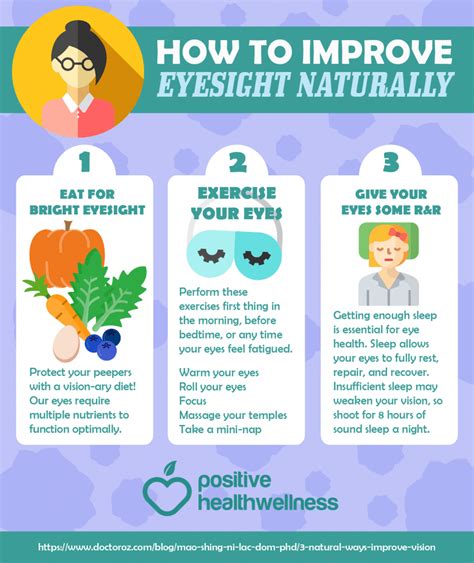How To Improve Eyesight: A Comprehensive Guide
Improving your eyesight is a goal many strive for. While you can't magically restore perfect vision, you can take steps to improve your eye health and potentially reduce your reliance on corrective lenses. This comprehensive guide explores various methods to enhance your visual acuity and overall eye well-being.
Understanding Your Vision
Before diving into improvement techniques, understanding your vision challenges is crucial. Are you experiencing blurry vision, nearsightedness (myopia), farsightedness (hyperopia), astigmatism, or age-related macular degeneration (AMD)? Knowing the specific issue will help you target the most effective strategies. A comprehensive eye exam by an ophthalmologist or optometrist is the first and most important step. They can diagnose any underlying conditions and advise on appropriate treatments.
Lifestyle Changes for Better Eyesight
Many factors impacting eyesight are within your control. Lifestyle adjustments can significantly improve your eye health and potentially enhance your vision:
1. The 20-20-20 Rule
For those who spend long hours staring at screens (computers, phones, tablets), the 20-20-20 rule is invaluable. Every 20 minutes, look at an object 20 feet away for 20 seconds. This simple exercise helps relax your eye muscles and reduce strain.
2. Diet and Nutrition
A balanced diet rich in nutrients is essential for eye health. Foods rich in antioxidants like lutein and zeaxanthin (found in leafy green vegetables, eggs, and citrus fruits) protect against age-related macular degeneration and cataracts. Vitamins A, C, and E also play vital roles in maintaining eye health.
3. Hydration
Staying adequately hydrated is crucial for overall health, including eye health. Dehydration can lead to dry eyes, making them more prone to irritation and fatigue.
4. Protect Your Eyes from the Sun
UV protection is non-negotiable. Wear sunglasses that block 99-100% of UVA and UVB rays to shield your eyes from harmful sun exposure, a major contributor to cataracts and macular degeneration.
5. Quit Smoking
Smoking significantly increases the risk of various eye diseases, including cataracts, macular degeneration, and optic nerve damage. Quitting smoking is one of the most impactful things you can do to protect your eyesight.
6. Regular Eye Exercises
While the effectiveness of eye exercises in improving refractive errors is debated, they can help alleviate eye strain and improve focus. These exercises often involve focusing on objects at varying distances or gently massaging the eye area. Consult an eye care professional before starting any new eye exercise routine.
Medical Interventions
For certain vision problems, medical interventions are necessary:
1. Corrective Lenses
Glasses and contact lenses correct refractive errors like myopia, hyperopia, and astigmatism, improving visual acuity.
2. LASIK Surgery
LASIK is a refractive surgery that reshapes the cornea to correct vision problems. It's a popular option for those wanting to reduce or eliminate their dependence on glasses or contacts. Consult with an ophthalmologist to determine suitability.
3. Other Surgical Procedures
Various surgical procedures address specific eye conditions like cataracts and glaucoma.
Conclusion
Improving eyesight involves a multifaceted approach combining lifestyle changes, dietary adjustments, and, when necessary, medical interventions. Prioritizing eye health through consistent proactive measures can significantly improve your visual well-being and quality of life. Remember to consult with an eye care professional for diagnosis and personalized advice. They can guide you on the best course of action based on your individual needs and circumstances. Don't hesitate to schedule a comprehensive eye exam – it's the first crucial step towards better eyesight.
